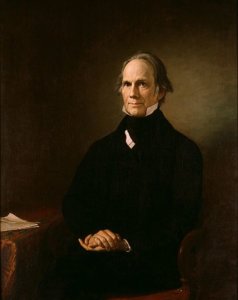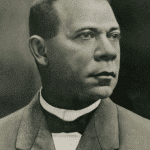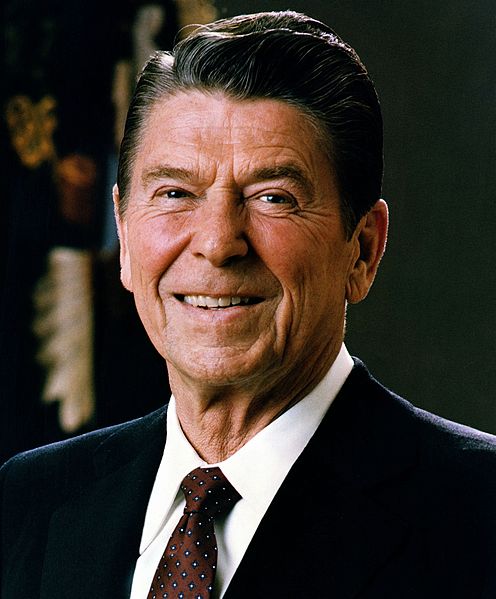If you’re making flashcards to prepare for the APUSH exam, you need to include important historical figures. This includes Henry Clay. Here are some Henry Clay APUSH facts to include on your flashcards as you review for the exam.

Who was Henry Clay?
Henry Clay was an important politician in the 18th and 19th centuries. He served as a senator from Kentucky and as Speaker of the House of Representatives. He also ran for president three times but never won. However, he did serve as Secretary of State for John Quincy Adams.
Most important, Clay was known as the “Great Pacificator” or “Great Compromiser”. He proved this when he created the Missouri Compromise and squashed the Nullification Crisis. During the War of 1812, he was a leader of the War Hawks faction of Congress. And he created the American System, an economic plan that used tariffs to generate subsidies to build roads, canals, and strengthen the American agricultural sector.
Key years:
- Born April 12, 1777
- Deceased June 29, 1852
Why is Henry Clay important?
Henry Clay devised the Missouri Compromise and the Compromise of 1850 to keep the Union together in the years before the Civil War.
What are some key events related to Henry Clay?
- War of 1812: Henry Clay was one of the leading advocates for going to war with Britain. He was a leader of the “War Hawks” in Congress. He also served as an ambassador for the U.S. during negotiations over the Treaty of Ghent.
- Second Bank of the U.S.: After the War of 1812, Congress created a bank in Philadelphia, Pennsylvania. However, it led to foreclosures, which caused the Panic of 1819.
- Missouri Compromise: Before Missouri became a state, there were 11 free states and 11 slave states. A debate broke out over whether Missouri would be a free state or slave state. To address this, Henry Clay drafted the Missouri Compromise. His ideas kept the peace for over 30 years.
- Corrupt Bargain of 1824: The Election of 1824 pitted Andrew Jackson, John Quincy Adams, and Henry Clay against one another. Clay was eventually disqualified, and Congress elected John Quincy Adams to be President. Adams then named Henry Clay as his Secretary of State. Some suspected that Henry Clay, using his power as Speaker of the House, convinced legislators to elect Adams over Jackson. Although such an action wouldn’t be illegal, it gave Henry Clay a bad reputation.
- Compromise Tariff of 1833: After the Nullification Crisis, Henry Clay convinced Congress to reduce the tariffs initiated in the Tariff Act of 1828.
- Compromise of 1850: To prevent a problem between the North and the South, Henry Clay helped draft the Compromise of 1850. It revised the Fugitive Slave Act, ended the slave trade in Washington D.C., and determined what to do with the land won in the Mexican-American War.
Henry Clay APUSH Practice Question 1
In the Election of 1824, Henry Clay:
A) was chosen to serve as Vice President under John Quincy Adams when he became disqualified as a presidential candidate.
B) selected the next President of the United States since he was the current Speaker of the House of Representatives.
C) received a bad reputation when the newly elected President of the United States chose him to be Secretary of State.
D) was the people’s choice because they knew him as the “Great Compromiser” from his work with the Missouri Compromise.
Answer:
C. Another name for this incident is the Corrupt Bargain of 1824. After he was disqualified from the race for president, Henry Clay threw his support behind John Quincy Adams. When Adams won, he named Henry Clay as the Secretary of State. Some suspected that Clay had come to an agreement with Adams behind closed doors, which gave Henry Clay a bad reputation.
Henry Clay APUSH Practice Question 2
Who helped diffuse political tensions during the Nullification Crisis of 1828?
A) Henry Clay
B) Andrew Jackson
C) John C. Calhoun
D) Daniel Webster
Answer:
A. The Great Compromiser, Henry Clay helped pacify the people with the Tariff of 1833.
Henry Clay APUSH Practice Question 3
As Speaker of the House, Henry Clay promoted an economic program known as:
A) the First Bank of the United States
B) the Morill Tariff
C) the New Deal
D) the American System
Answer:
D. Although the program was first proposed by Alexander Hamilton, Henry Clay used his position as Speaker of the House to promote it.
Henry Clay APUSH Practice Question 4
One of the tenets of Henry Clay’s American System was:
A) preventing the sale of imported goods.
B) building canals, harbors, and roads.
C) improving the quality of education for children.
D) reducing the number of foreign allies.
Answer:
B. As proposed by Henry Clay, the American System was focused on domestic improvements. Not only did it call for building canals, harbors, and roads, but it also proposed a tariff to protect American industry and the creation of a national bank.
Henry Clay was a lawyer and statesman. Even though he never became president, he worked hard to serve the country. As you prepare for Henry Clay APUSH questions, think about how he affected the country as the “Great Compromiser.”
Happy studying and good luck!





Leave a Reply